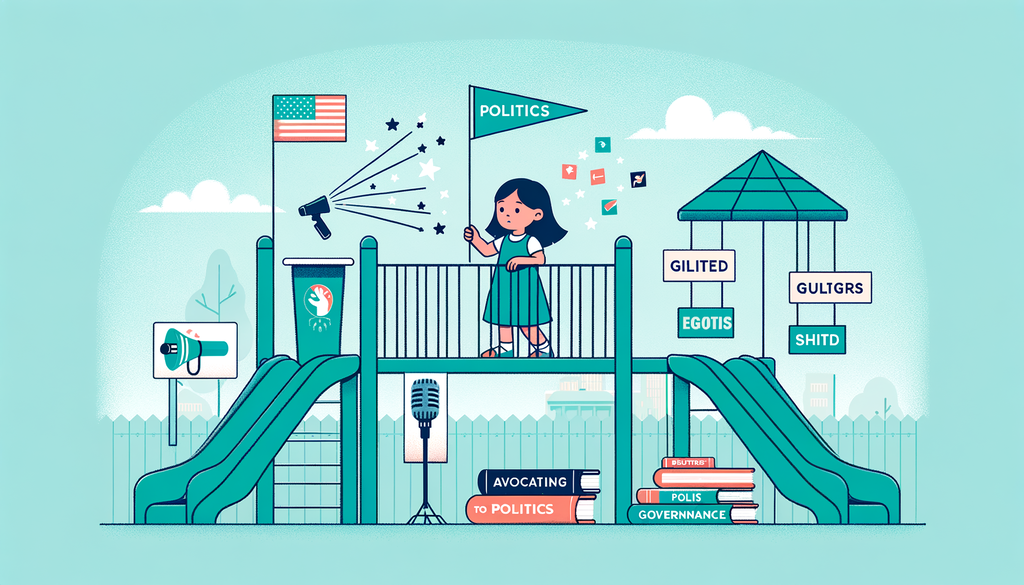From Playgrounds to Politics: Advocating for Your Gifted Child

From Playgrounds to Politics: Advocating for Your Gifted Child
Navigating the world of education for your gifted child can feel like treading through a maze without a map. Whether managing social situations in the playground or bolstering learning outcomes in classrooms, equitable treatment for your gifted child is often a matter of consistent advocacy.
In this post, we will explore several methods for promoting your child’s unique needs, highlighting both the social and academic aspects.
Social Advocacy
Children often face difficulties interpreting the social nuances on the playground. This challenge may be pronounced for gifted children, who can sometimes feel isolated due to their varied interests and advanced cognitive abilities.
To help your child navigate social situations, you can:
-
Foster Emotional Intelligence: Encourage your child’s understanding of their emotions and those of others. This learned ability will prove invaluable as they navigate various social settings. Managing Meltdowns: Strategies for Parents offers effective techniques to handle emotional outbursts and behavioral challenges.
-
Join Support Groups: Connect with other parents who have gifted children. This can provide shared experiences and strategies. Our post, Seeking Support: Finding the Right Community for Special Needs Families, provides useful guidance on finding the right support groups.
Educational Advocacy
Ensuring the educational system adequately supports your gifted child can be a delicate process. Here are some steps you can take:
-
Engage with Teachers: Regular communication with educators about your child’s progress can help tailor learning experiences to their unique needs.
-
Understand the Law: Be informed about educational laws that protect gifted children’s rights. Our post, The Legal Landscape: Your Child’s Rights in Special Education, offers a comprehensive look into these laws.
-
Consider an IEP: While typically associated with children with special needs, an Individualized Education Program (IEP) can also be beneficial for gifted children. Learn how to navigate this process with Your Child’s Rights: Understanding the IEP Process.
-
Explore Enrichment Programs: Engage your child in after-school activities or programs designed for gifted children to further enhance their learning journey. Read more about this in Fostering Creativity: Enrichment Programs for the Gifted Learner.
In conclusion, advocating for your gifted child requires persistence, emotional intelligence, and a comprehensive understanding of your child’s rights. Though the journey can be complex, it is an invaluable investment in your child’s future, propelling them towards their fullest potential.